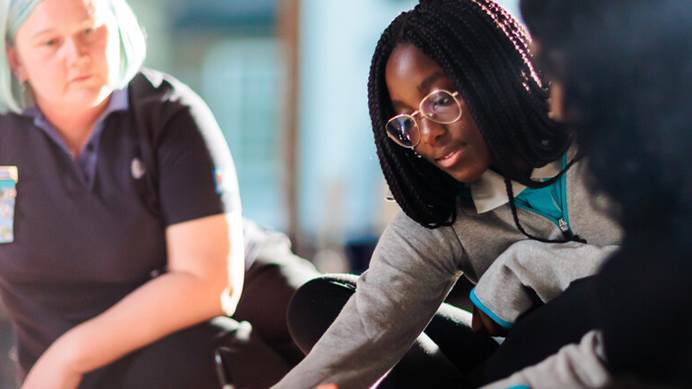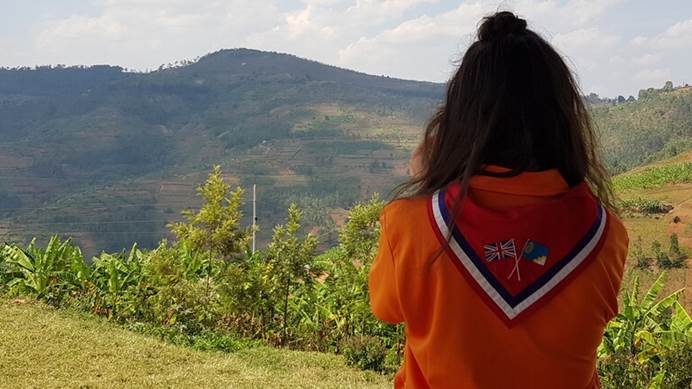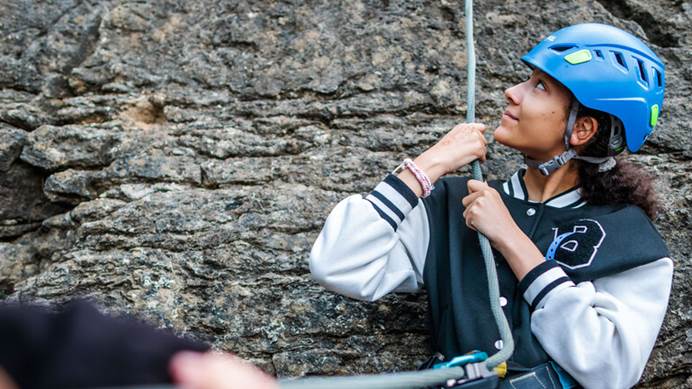Start the conversation this World Mental Health Day
This World Mental Health Day is about supporting others with their mental health – Amy explains how as a Peer Educator she is doing just that
If you’ve had a mental health problem, you’re not alone - one in four people experience mental health issues in their lifetime
For me, it’s important that young people know they’re not the only ones. This World Mental Health Day is all about supporting others with their mental health. This is part of what I do as a Peer Educator. I equip my peers, members of Brownies, Guides and The Senior Section, with the skills to look after their own mental well-being.
Girls and young women are being affected by mental health issues
I was shocked but not surprised that in the 2016 Girls’ Attitudes Survey 52% of girls aged 7 to 21 said they would not seek help because they feel uncomfortable talking about their feelings. Despite this, 34% of girls aged 11 to 21 think supporting young people with their mental health should be a top priority. These findings make it clear that mental health is something we need to talk about.
Peer Educators are starting the conversation
Last year, Peer Educators voted to decide which issue they thought was most important to young women today. The result of this was Think Resilient, a resource and badge developed alongside Young Minds. It aims to encourage young women to develop strategies to support their mental well-being through a series of interactive activities.
I’ve been inundated with requests for the training in my local area and have already run sessions for Guides and members of The Senior Section. I’ve found that peer education sessions offer a safe space where young people can be open about the challenges they’re facing. Participants have told me at the start of sessions that they don’t know how to cope with pressures they’re experiencing. Think Resilient gives girls strategies to build their resilience so they’re better prepared to face life’s challenges.
Think Resilient at a glance
One activity which always provokes discussion is the resilience relay race.
Participants take part in a relay race to overcome obstacles that they may face on a day-to-day basis. Examples of ‘obstacles’ the participants have told me about in sessions include anxieties about school work or rumours being spread about them at school. By the end of the activity, they agree that with the right tools - such as knowing where to go for support - they can become more resilient.
My experiences of running Think Resilient sessions have been rewarding. Girls get really engaged and walk away with a set of skills to improve their mental well-being. At the end of a session, I’ve had participants say to me that they feel more positive about what to do if they’re in a challenging situation and who to ask for help if they’re struggling to cope.
We need your help
Think Resilient and World Mental Health Day are about starting the conversation - and I need your help to do this! If you’re 14 to 26 and want to make a difference, you can become a Peer Educator and deliver sessions. If you’re already a Peer Educator sign up for a Think Resilient training by emailing [email protected] with your membership number. It’s really important we give girls the space they need to talk about mental well-being – Think Resilient does just that.
Leader or young member?
Book a Peer Educator like Amy to come and visit yout unit, or if you're aged 14 to 25 become a Peer Eductor yourself.



